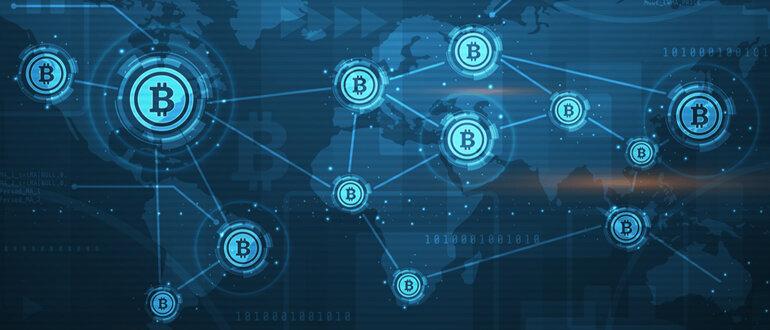
Future of Blockchain Technology - The Next Digital Frontier
Blockchain technology has been a game-changer in the digital world, revolutionizing industries and transforming business operations. As we gaze into the future, the potential of blockchain technology seems limitless, with endless possibilities waiting to be explored.
In this blog post, we will explore the exciting possibilities and trends, focusing on four key areas: Decentralized Finance (DeFi), the Internet of Things (IoT), environmental sustainability, and the future of work.
Future of Blockchain Technology: Transforming Industries and Revolutionizing Business
Blockchain technology has emerged as a disruptive force with the potential to revolutionize traditional business models across various industries. Its unique features, such as decentralization, transparency, and immutability, offer a new approach to conducting transactions and managing data.
As we move forward, the possibilities of blockchain technology are endless, and it is poised to unlock new opportunities for growth and innovation in the digital world.
Decentralized Finance (DeFi) and the Rise of Crypto-Economy
Decentralized finance, or DeFi, has quickly become one of blockchain technology's most promising and revolutionary applications. By leveraging the decentralized nature of blockchain, DeFi offers a new approach to traditional financial systems, allowing for greater accessibility, transparency, and efficiency.
DeFi offers financial services and products without intermediaries, leveraging smart contracts and blockchain's decentralized nature. This technology enables transparent, secure, and efficient peer-to-peer transactions, cutting out traditional financial institutions.
In addition, the rise of decentralized stablecoins and automated market makers further strengthens DeFi's foundations.
DeFi's growing popularity is set to reshape traditional finance by democratizing financial services, reducing bureaucracy, and empowering individuals to control their assets.
Blockchain and the Internet of Things (IoT): A Perfect Match
The Internet of Things (IoT) is another area set to be transformed by blockchain technology. IoT refers to the interconnectivity of everyday objects, allowing them to collect and exchange data. However, security and trust remain significant concerns within IoT ecosystems.
Blockchain's decentralized and tamper-resistant nature provides an ideal solution for IoT security challenges. By integrating blockchain technology, IoT networks can ensure data integrity, authentication, and secure communication among devices. In addition, blockchain enables a transparent and immutable ledger, enhancing trust and preventing unauthorized access or tampering.
With blockchain and IoT working hand in hand, we can envision a future where devices can securely communicate and transact with each other, opening up new possibilities in areas such as supply chain management, healthcare, energy grids, and smart cities.
Blockchain and Environmental Sustainability: Creating a Greener Future
Environmental sustainability is a pressing global concern, and blockchain technology holds significant potential to address this challenge.
For example, blockchain can facilitate transparent and traceable supply chains, enabling companies and consumers to verify the origin and sustainability of products. This feature is particularly vital in industries such as food and fashion, where ethical sourcing and fair trade practices are paramount.
Moreover, blockchain-based platforms can incentivize eco-friendly behaviors through tokenized rewards and carbon offset programs. These initiatives encourage individuals and organizations to reduce their carbon footprint and support sustainable practices. Blockchain's decentralized nature also eliminates the need for intermediaries, reducing administrative costs and enhancing efficiency in sustainability initiatives.
By leveraging blockchain technology, we can work towards a greener future by promoting transparency, accountability, and sustainable practices across various industries.
Blockchain and the Future of Work: Opportunities and Challenges
Opportunities:
Decentralized Marketplaces
Blockchain enables direct connections between freelancers and clients, eliminating intermediaries and empowering workers.
Smart Contracts and Automation
Smart contracts streamline work processes, ensuring transparency and efficiency in contract management.
Secure Identity Verification
Blockchain authenticates identities, simplifying hiring processes and reducing fraud.
Micropayments and Global Accessibility
Blockchain facilitates seamless micropayments, enabling fair compensation for small tasks and increasing access to global work opportunities.
Immutable Records and Credential Verification
Blockchain provides a secure system for storing and verifying credentials, improving trust between employers and employees.
Challenges:
Scalability
Blockchain faces challenges in handling many transactions quickly and efficiently.
Regulatory Frameworks
Clear guidelines and regulations are needed to address legal and compliance issues in the blockchain-based work ecosystem.
Data Privacy
Balancing transparency and privacy is crucial when personal information is stored on the public ledger.
Technological Literacy and Accessibility
Ensuring access to necessary tools and education is essential for the widespread adoption of blockchain technology.
Resistance to Change
Overcoming resistance from traditional industries and established players is necessary to fully realize the benefits of blockchain in the future of work.
From decentralized finance and IoT integration to environmental sustainability and the future of work, blockchain technology is poised to be the next digital frontier, shaping how we live, work, and interact with the digital world.
Embracing blockchain's possibilities and addressing the associated challenges will be vital to unlocking its full potential in future years.

0 Comments